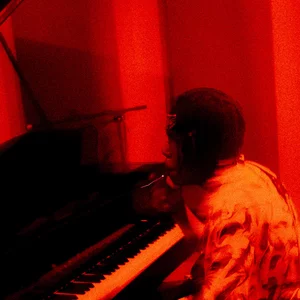The question of whether pop music is truly “better” is a complex inquiry that wouldn’t seem to have a straight answer. However, this genre is a dominant force in the industry, captivating the masses and shaping a cultural landscape. It has to be doing something right, right?
A fundamental challenge in assessing any art is the inherent subjectivity of aesthetics. The nature of pop implies a universal appreciation, similar to the complex effects of social interactions; the popularity of music can be seen by some listeners as a vain attempt at general acceptance like “if everyone likes you, you’re doing too much to get along.” As pop is embedded in the current cultural context, questions about cultural relativism are raised: is it fair or meaningful to compare pop music from different cultures or eras?
As pop is intertwined with the culture of its time, looking at pop throughout history raises the issues of cultural relativism. Artists like the Backstreet Boys, Michael Jackson, Justin Bieber, Taylor Swift show how pop has grown and shifted. Can pop music be compared between different eras and cultures, and if so, with what metric can one draw meaningful conclusions about the nature of the art? While an understanding of the culture connected to popular music is important, labeling it as a necessity when discussing or forming an opinion on popular music is only important when attempting to understand it through an academic lens.


For the purposes of this article, I want to define good as the effort and skill (either perceived or actual) as well as the opinions of the public through financial impact. So, these songs are technically good, with most chart-toppers belonging to the pop genre. Pop music is accessible and has large financial institutions supporting it, allowing for its extensive airplay on all platforms and ensuring the omnipresence of pop in the music industry. It’s also a heavy reflection of current ideas, mirroring current trends and tastes— it resonates with younger demographics, which helps propel it to the mainstream. Pop music is integral to contemporary culture and has a sort of timeless appeal, even though it absorbs the effects of different genres.
The interesting question is, do these characteristics make for good music? Many would say no, since it’s supposed to be palatable for everyone; it’s made to be appealing to the lowest common denominator. A lot of people who prefer other music find most pop music to be generic and cheesy. Critics accurately point out the commercial and formulaic nature as a sign of artistic shallowness. The production value is good perhaps, but the composition is almost objectively lackluster. On the flip, the value can be derived from its ability to evoke emotions to a greater audience. From a utilitarian standpoint, pop has greater significance and perhaps a moral responsibility to promote positivity using surface-level lyrics.
The advancement of the digital era makes music increasingly reliant on computers rather than talent. The people making pop now are almost uninterested in passion or honesty. By the data, songs have shown less and less diversity with instruments and recording techniques. A national research council examined around 500,000 recordings from 1955 to 2010 and ran every song through complex algorithms. They measured harmonic complexity, timbral diversity, and loudness and found that timbre (the texture, color, and quality of the sound within the music) has dropped significantly over time. In fact, it peaked in the 1960s and has declined since. Record labels would rather the pretty face that is already a celebrity rather than a new, unenforced but conceivably more talented singer- it’s cheaper. These points are far more invaluable to me, pop music isn’t interesting.

Is it really objectively worse that pop isn’t trying to push boundaries and innovate? Art celebrates pushing the boundaries of tradition and convention, and creativity demands it. It’s artistically valuable to incorporate novel sounds, production techniques, or lyrical themes. This is how I enjoy any art, both from the effort of the artist and the reality of their talent. A debate often revolves around the authenticity of pop music in the face of commercial interest; the profit-driven nature of the pop music industry compromises its artistic value. Nevertheless, critics have maintained that art’s authenticity lies in its ability to communicate genuine human emotions and experiences.
I recognize there’s no pure criterion as what one person seeks in music, be it intellectual stimulation, emotional resonance, or pure entertainment, might differ from another’s preferences. Thus, the ultimate criterion for evaluating pop music’s quality may be personal satisfaction and fulfillment. However, pop music recently is pretty crap.


